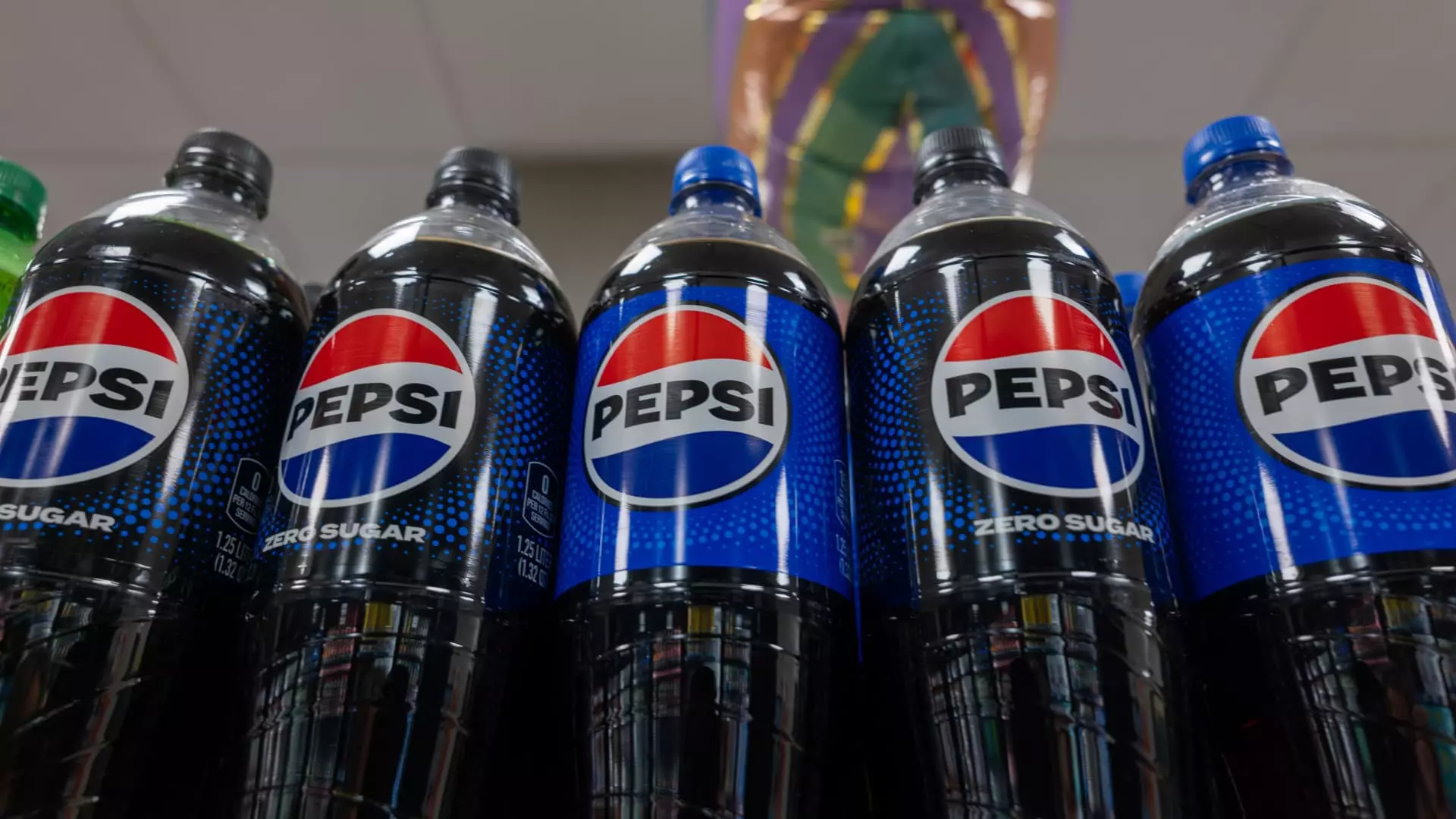In today’s competitive market landscape, even giants like PepsiCo are finding it increasingly challenging to maintain their stronghold. The recent quarterly results released by the food and beverage titan reveal a nuanced reality that many would find alarming. The company reported mixed results, showing that international sales managed to offset a chilling decline in North American demand—raising eyebrows in an industry accustomed to consistent growth. With CEO Ramon Laguarta indicating that the outlook is clouded by global trade developments and rising supply chain costs, the question is: how long can PepsiCo sustain its momentum?
It’s perplexing to see a company of this magnitude struggle amid economic volatility. The conservative nature of consumer spending, adorned with inflationary pressures, has evidently caused a shift in consumer behavior. People are prioritizing value over brand loyalty. As company executives reveal, customers are now navigating their food shopping with rhino-like caution, weighing costs rigorously and altering their purchasing patterns. This isn’t merely a trivial market fluctuation; it’s an alarming sentiment shift fraught with potential long-term consequences.
Revised Forecasts and Shrinking Profits
PepsiCo’s adjustments to its earnings forecast herald a disconcerting trend. By reducing expectations for core constant currency earnings per share, the company appears to be grappling with the ramifications of newly imposed tariffs and relentless economic uncertainties. What’s more shocking is the revelation of a net income drop year-over-year—$1.83 billion dwindling from $2.04 billion—signifying that even after adjustments for restructuring, the fundamentals are in apparent decline.
With analysts expecting earnings to hold steady, the reality of a dip in performance hints at deeper issues not easily addressed within the boardroom. Operating within a challenging economic climate coupled with shifting consumer expectations signals that perhaps the business model needs an extensive overhaul. The recent decrease in net sales by 1.8% suggests that complacency could be resulting in dire consequences. Can PepsiCo pivot fast enough to stay relevant?
Strategic Shifts in the Wake of Change
PepsiCo has announced its intention to adapt by expanding into multicultural and functional products, which is a commendable approach. The acquisition of Poppi, a prebiotic soda brand, reflects an effort to capture the health-conscious consumer demographic that finds itself at the core of current purchasing trends. However, the overly cautious tone from company leaders raises concerns about how effective these strategies will truly be.
The question remains: are these growth avenues substantial enough to offset declining volumes in core categories, particularly in North America? While Pepsi Zero Sugar may be gaining traction and some snack brands are indeed flourishing, it remains to be seen if these bright spots can spark a full-scale turnaround. The struggle is real; the response currently seems more reactive than proactive.
Brand Revitalization or Misguided Focus?
In challenging environments, clarity of vision is essential. Unfortunately, some of PepsiCo’s efforts—such as increasing in-store visibility for its range and focusing on engaging consumers—seem more like damage control than an authentic game plan for revitalization.
With evolving consumer values, the company must engage in genuine introspection regarding its long-established practices. Is PepsiCo stuck in a rut, trying to react to trends rather than preemptively shaping them? The gamble to expand its health-oriented product lineup could be the right move, but it must also address its core offerings with equal urgency.
As the industry adjusts to a landscape wrought with tariffs and economic tribulations, other beverage giants are also navigating similar challenges. Yet, many are thriving while PepsiCo’s brands lay stagnant. The disparity begs the question: Is PepsiCo truly equipped to respond to this shifting terrain, or are they simply clinging to a fading legacy?
In the face of a rapidly evolving marketplace, it would serve PepsiCo well to adopt a more daring approach. Embracing innovation, focusing on customer-centric strategies, and making bold moves could set them on a more favorable trajectory. Companies like PepsiCo should not merely react to market shifts; they should anticipate and lead them. The stakes have never been higher, yet staying the course may lead them to perilous waters.

